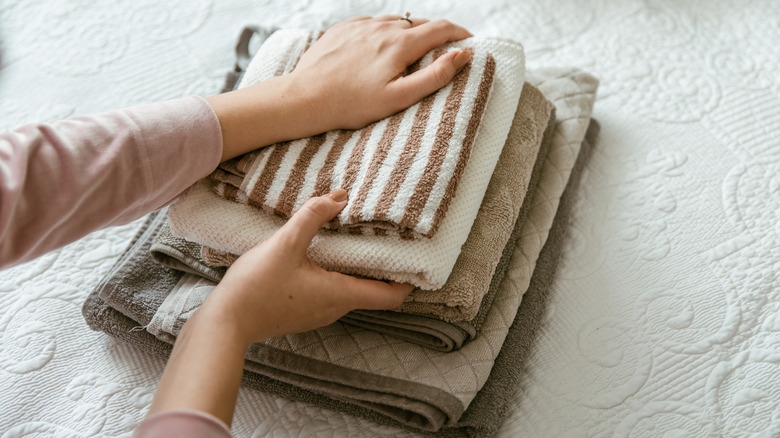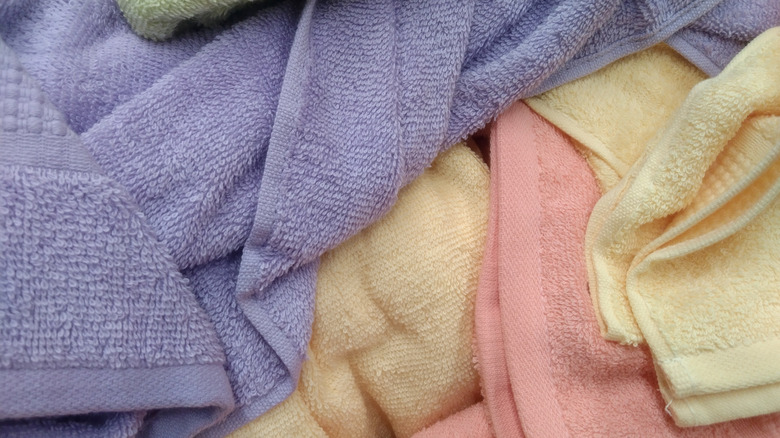Why You May Be Better Off Avoiding The Towels From A Thrift Store
Thrift stores are chock-full of gems that are tempting to bring home. Whether you actually need them or not, well, that's a different story. But when it comes to buying towels, it's probably best to resist the urge to save a little money and ignore the aisle altogether. There are, indeed, many quirky vintage decor items that you should always look for at the thrift store. As for towels, they don't make the list of must-have secondhand items. Even if they're hung up nicely in the thrift store, it all comes down to the fact that you have no clue what kind of germs those towels are harboring. And the last thing you want to do is rub a bacteria-filled towel on your skin.
We use towels to dry ourselves off after showers, baths, and washing our hands. But how clean are they, really? The reality is that dirty towels can contain mold, yeast, and bacteria. Even fecal particles and E. coli can end up on a bath towel. These types of germs can cause various skin issues, from warts to jock itch. By no surprise, it's recommended that you wash your towels frequently and dry them properly to minimize the risks. What about those secondhand towels, though? Did they receive the same regular attention? That unknown is reason enough to leave even the most attractive, luxurious towels at the secondhand shop.
Beautiful thrifted towels can be deceiving to the eye
If you're someone who likes to buy towels from a thrift store, you likely inspect them first. This is a standard move, even if you're upcycling old towels for a DIY project. But even if the towels appear to be in good shape, it's impossible to know their actual history (or see the miniscule contaminants that could be living in the fibers). A general rule of thumb is to replace your bath towels every two to three years, although usage can play a factor in how long you can use your towels. With towels at a thrift store, it's difficult to tell how old they really are or what they've been through.
Another reason you might want to skip thrifted towels is because of how dirty they might be. Donating clothes and linens that are clean is part of thrift store etiquette. However, not everyone follows along. Small shops occasionally choose to wash items before hanging them on racks – just don't expect bigger stores to do so. Towels can already hold onto germs and odors, so it's hard to imagine picking one up that wasn't tossed in the laundry prior to donation. Yuck. The same goes for dish towels, hand towels, and washcloths.
If you're still set on purchasing your towels secondhand, avoid ones with stains, a musty odor, or a stiff texture. Also, be sure that you launder them after getting home. Use a hot-water cycle and wash your hands immediately after handling them. While skimming the towel aisle, keep your eyes open for new ones that still have tags on them. A money-saving alternative to thrifting towels is buying new ones from clearance sections or during special sales.

